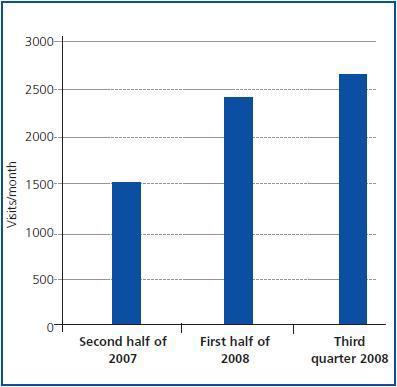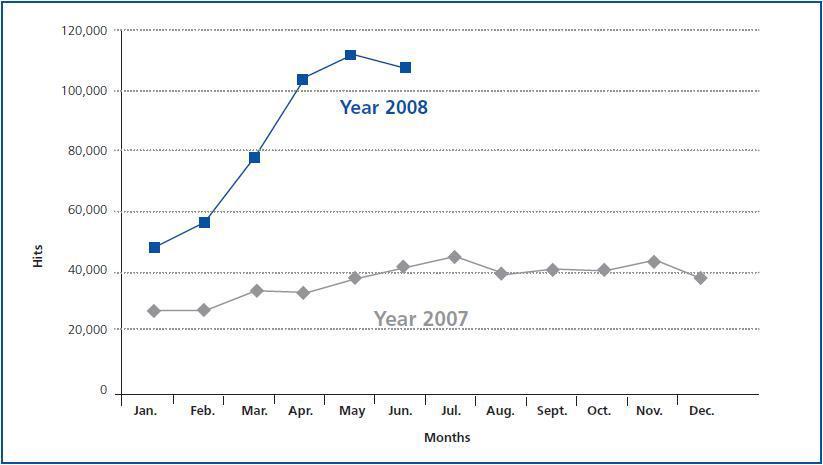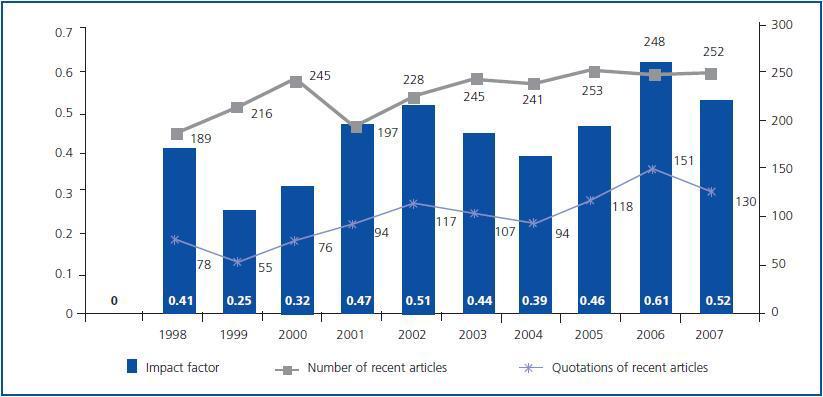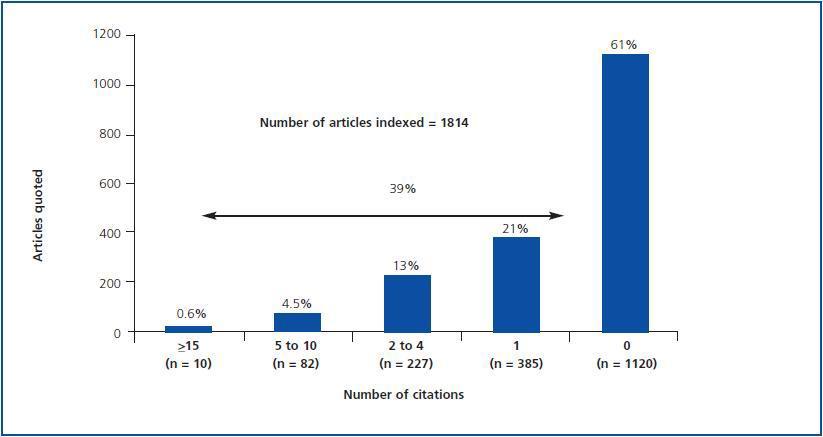In an editorial published in Nefrología1 one year ago, we highlighted the need for our Journal to evolve in order to adapt to the rapid changes occurring in medical publications, for the efficient use of new means of circulating biomedical knowledge and to provide a better response to the diverse and changing needs of readers.
To achieve this objective, the Journal turned to the Spanish Society of Nephrology in an attempt to involve the most active and high-ranking individuals and introduce changes, both in the concept of Nefrología, as an Official Body for the Spanish Society of Nephrology, in organisational and management aspects and in the paper and Web editions.
The paper edition has changed significantly, both in terms of its design, in order to give it a more modern and userfriendly format (front cover, structure, composition, types and colour, etc.), and in terms of the editorial line, to achieve a better thematic balance and promote rigour and the educational principles of conciseness and clarity. Table 1 summarises the content of ordinary issues, published in 2008. It can be seen that throughout this year, the overall number of articles decreased with respect to previous years, in particular case reports. We will explain the reason for this at a later point when we discuss the impact factor and editorial policy.
A total of six supplements were published: one on evidencebased nephrology, two dedicated to developing aspects of the SEN (Spanish Society of Nephrology) Guidelines, one containing papers presented at the conference on peritoneal dialysis and another on updates within Nephrology, as well as an issue containing summaries sent to the SEN annual conference. We believe that the quality of these supplementary issues has been very high. However, we also feel (and we will discuss this in more depth when we look at editorial policy) that the issue of supplements and extra issues is one of the main aspects requiring attention.
Furthermore, in the editorial published a year ago,1 we commented that the Nefrología must retain its objective of promoting an editorial line relating to continuing medical education, with the aim of updating biomedical knowledge within this field. As a result, and given its characteristics as a medical Journal conditioned by the limitations imposed by the impact factor, we decided to introduce a new publication for continuing medical education (in line with other international nephrology Journals with widespread circulation.) The name of this new publication is NefroPlus and the first two issues have already been published. The quality is excellent and we hope to continue to improve over the next few years. The Nefrología Basada en la Evidencia (Evidence-based Nephrology) publication has also continued its activity, both the printed Journal and the Web version and at the SEN National Congress.
One of our main objectives is to improve the online version of Nefrología. In this respect, we have changed the structure and look of the site to adapt it to the publication's general image. A section of featured articles has been added, as well as another for pre-published ones. There is also a section reserved for continuing medical education and evidence-based nephrology. However, one of the most noteworthy changes of this year is without doubt the translation into English of all articles included in the ordinary issues.
This will undoubtedly help achieve greater circulation, thus facilitating an increase in the number of quotations.
Data relating to the number of visits for our articles on PubMed are shown in figure 1. According to a report from this agency, Nefrología articles were consulted on average 1757 times a month in the last six months of 2007, 2411 times a month in the first half of 2008 and 2673 in the third quarter of that year. In October 2008 (the last data available), this figure reached 3315 visits, our highest number to date on PubMed.
Is clear that the Nefrología Website is attracting increasingly greater interest among Spanish-speaking Nephrologists and specialists in this area. The number of users registered on the Website rose from 2490 to 3614 in just one year and the average number of monthly visits from 33,326 in 2007 to 92,368 in 2008. This figure exceeded 100,000 monthly visits for the majority of the year (figure 2.) Furthermore, the number of article downloads rose from 42,250 a month in 2007 to 107,704 a month in 2008. An analysis of the origin of these hits shows that approximately half (45.7%) are from Latin American countries and 35.7% from Spain.
Improving the impact factor is one of our greatest and most difficult objectives. Nefrología’s impact factor (figure 3) has remained stable since 1998, at around 0.50 (in 2008 it was 0.402), with slight variations. The highest score was achieved in 2006 (0.609) and 0.516 in 2007.
The Institute for Scientific Information (ISI) calculates the impact for a certain year (for example, 2007) by dividing the total number of quotations achieved during that year for any article published during the preceding two years (2005 and 2006) by the number of articles published during the same two year period (the ISI excludes the following from the equation denominator: editorials, editorial commentaries and letters to the editor.)
The past issues of Nefrología show that the Journal has a very high number of articles included in the impact factor denominator (for a twice-monthly publication), which almost doubles the number of quotations achieved. The main reason for this high number of articles is the large number of supplements published by our Journal. Furthermore, articles on lectures made at conferences or meetings which are financed by the industry do not normally produce many quotations and are sometimes rejected by the Medline indexation if they do not meet strict formal requirements (conflict of interests, peer reviews, etc.) and for economic reasons, do not include an English version. Both of the above have a negative effect on the impact factor.
The quotability of an article depends, firstly, on the Journal in which it is published, most likely for circulation and prestige reasons. The quality and relevance, as well as the type of article also play a part.
The articles with most quotations are editorials by prestigious authors, reviews (particularly meta-analysis and systematic studies), multi-centre originals, articles on the results from records and clinical practice guidelines and consensus recommendations. Case reports are among those with the least quotations. Many articles are not quoted (20-30% of original research articles are not quoted in Journals with greater circulation.)2-6 A bibliometric study of Nefrología confirms these data.7 Figure 4 shows that in the period between 1998 and 2007 (inclusive) only 694 (38%) of the 1814 articles published in Nefrología, and indexed by the ISI, received at least one quotation, only 5% achieved five or more and 1.5%, 10 or more. An analysis of the articles published in this period shows that those with most references were articles regarding records, original multi-centre studies, consensus articles and reviews. In contrast, only eight clinical cases had at least one quotation.
This shows that we must change our editorial policy to adapt to current needs.
NEFROLOGÍA PUBLICATIONS
Firstly, we must establish and consolidate a policy for improving the quality and selection of articles and authors (editorials, reviews) to increase the impact factor. This issue cannot be left to chance. It concerns the scientific production of the SEN (publications by Spanish Nephrologists in international Journals who cite us), and attracting articles for Nefrología with greater quotability potential (this will be achieved as the impact factor improves and by making the publication more attractive to the author; for example, reducing the time taken for publication, diffusion, publication in English and an active search for prestigious authors for reviews and editorials, etc.)
We must also change our editorial management philosophy and methodology. The number of articles and supplements does not matter so much and many articles will have to be included in supplementary publications, diversifying the editorial line to produce products with supplementary objectives, which are of great importance but which do not affect the IF (NefroPlus, a continuing medical education publication, extra issues or issues specialising in one subject, etc.)
The number of current supplements (indexed in the ISI) will therefore have to be limited to articles that have a positive effect on the impact factor (clinical practice guidelines or consensus articles, etc.), quality products with at least the abstract translated into English (however a bilingual edition is preferred), which may be indexed according to Medline criteria, etc. As is the case with other Journals, we must introduce a line of supplementary issues including group articles, papers presented at conferences, clinical cases and other editorial products of interest to sections of our society and provide these in printed versions as well as online publication via the DOI system (Digital Object Identifier)8 and platforms for diffusion. These issues will be quoted in Nefrología but will not be indexed in the ISI.
We want to boost the continuing medical education publication of Nefrología (NefroPlus) and Nefrología Basada en la Evidencia, (Evidence Based Nephrology) both of which have great support on the Web, with specific formats and editing techniques. These publications produce a huge amount of quality material, which is not however suitable for publication in Nefrología. They also deal with specific demands for which there is no room in the Journal's normal issues.
NEFROLOGÍA ONLINE
The main objective for this year is to improve our Website, with a more functional and user-friendly environment favouring greater circulation for our publications.
This will be achieved by first of all reducing the time taken to approve an article for publication and diffusion. The review process must also be improved and, as is the case in the best Journals, the management process must also be changed from a ‘per issue’ to a ‘per article’ process, by adopting the DOI system, so that as soon as the articles are approved, they can be published on the Website and in PubMed.
We need to continue to consolidate our diffusion policy for publications in English and action must be taken to extend this (circulate a pdf document containing the English version of the issue by e-mail, establish collaborations with prestigious European Nephrologists for reviews and editorials and improve their quality.) In this respect, we need to establish a completely bilingual version of the Website and incorporate our Journal in other strategic digital diffusion platforms for this type of publication.
NEFROLOGÍA EDITORIAL GROUP
All these efforts must be supported by a new organisational structure grouping together all our editorial production team and implementing the same levels of rigor and quality in all areas of the team to achieve greater scientific and economic efficiency.
For this purpose, the Spanish Society of Nephrology, by means of a public tender, has awarded the publication of our Journals, both the paper and online versions, to a new publishing house (PlusMedical), a move which we hope will be a determining factor in achieving the objectives put forward.
We conclude this article with the same comment made in the editorial of last year. We are aware that the progress of Nefrología depends above all on the interest shown by Nephrologists and it will be published as long as they consider it their own and collaborate in the production process by submitting their articles and observations and criticism.
One of the decisive aspects for increasing the impact factor is that the Spanish Nephrologists who publish articles in other Journals indexed by the ISI include quotations from Nefrología where relevant (this will without doubt be the case in many circumstances, and can also be done in English), and that they collaborate with the Journal by providing editorials, reviews or summaries related to their article, which may be quoted in other Journals. One of Nefrología’s objectives for this year, as previously stated, is to improve the Website, equipping it with powerful and versatile search engines to facilitate searches for articles required.
It is also important that we implement an intensive "public relations" campaign, not only for the circulation of our publication in non-Spanish speaking areas, but also to encourage prestigious international authors to collaborate with us and therefore attract attention to our Journal (and some quotations.)
It is clear that the Journal belongs to everyone and we hope to receive everyone’s help. We would therefore like to conclude by sincerely thanking all of you who have collaborated with us this year, our reviewers, editors, authors and even our critical readers. Many thanks and we do expect to present our improvements in 2009.
Table 1.
Figure 1.
Figure 2.
Figure 3.
Figure 4.















